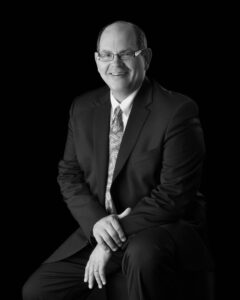Thoughts and Prayers and Strawmen

Phil Cook
As I’m writing this, we’re reeling from yet more repulsive, evil violence, perpetrated with both guns and knives.
I don’t know who started the saying “thoughts and prayers,” but I never use it. It seems to be grasping for something that is secular yet somewhat meaningful without being too embarrassing. It doesn’t work, like a boat that is built equal parts sailboat and motorboat and ending up not good for either. And it’s easily mocked. Sending thoughts is meaningless. Prayers are too religious and make demands on people. So, some good-hearted, well-meaning people invented the thoughts-and-prayers cliche. Think nice thoughts or do your prayer thing if you’re into that. Whatever. “Cause I gotta say somethin.”
Now, others have chosen these tragedies as an opportunity to score political points.
“Your thoughts and prayers are useless. Stop. Adopt our policy demands instead!”
The most famous comment came from Jen Psaki: “Prayer is not freaking enough … Enough with the thoughts and prayers.”
I just saw a video of a woman dancing and gleefully singing “Thoughts and prayers” over and over to mock those who mourn the murder of Charlie Kirk. But we don’t say that phrase. It’s easy to win a battle against a strawman. We know it’s a meaningless, sentimental platitude. We can agree that empty phrases don’t work. Of course, our frustration, anger, and fear demand something tangible be done.
On this page on August 30th, Columnist Erick Erickson, while criticizing both sides, stated, “Politics has no solution for evil. No legislation solves spiritual problems.”
But ridiculing “thoughts and prayers” as a convenient cudgel to beat up political enemies reveals a profound misunderstanding of what prayer is. Is it true that prayers accomplish nothing?
Prayer is two-way conversation. The goal is reconciliation and then Relationship. There are many different ways healthy attachment is cultivated. Relationships grow through talking, listening, thanking, comforting, asking, grieving, just being together. When our heart touches His, we begin to adopt His mind. Prayer should lead to maturity. And out of that maturity should come direction for next steps. The next steps in action.
Consider one of my heroes, William Wilberforce. He said, “Of all things, guard against neglecting God in the secret place of prayer.” After dedicating himself to prayer, he became the driving force behind the ending of the slave trade in the UK. This emboldened the abolitionists in the US who were deeply committed to prayer as a central component of their movement.
Prayer directs, changes the heart. Prayer leads to human flourishing: peace with God, self, and others. I listened to David Platt recently, who said, “I had lunch yesterday with an Afghan sitting next to an Iranian, sitting next to someone born in South Korea next to somebody whose family is from South Asia. And the Afghan shared how he once volunteered to work with the Taliban because he wanted to fight and kill Americans. Then the Iranian shared how he once volunteered to work with the regime because he wanted to fight and kill Afghans. Yet here we all were sharing a meal, encouraging one another, laughing together, praying with each other, praying for each other. I sat in awe of the power of God’s love in Jesus to not just turn enemies into friends but to turn violent adversaries into eternal family in a world of senseless violence.”
What has been accomplished by pray-ers, by those who prioritized regular and costly times alone with God? Historically, they stamped out gladiatorial combat and death games. They put an end to temple prostitution. Infanticide. Child labor. Wives as property. Class distinctions. They brought into the world a force for human dignity and equality. Because they learned that every person is made in the image of God, they laid a foundation for universal human rights which helped eliminate slavery and led to the democratic system of government. This brought law and justice while emphasizing the worth of each individual which led them to create laws to protect the vulnerable. They focused on charity and social services. The pray-ers organized care for widows, orphans, the sick, the poor. They established the first hospitals and orphanages which led to social organizations and public health initiatives. Education, science, and innovation. Art, architecture, and culture. Political and social order. A moral framework for government. Moral vision and reform. If you could ask the leaders of these movements, they would say it began in prayer.
Today, O God, show me mercy that I may be merciful. Give me wisdom that my actions may be wise. Show me love, that I may give grace freely. Open my eyes to the light You are bringing. May I co-operate with You as we beat back the darkness in this broken world.Thy kingdom come on earth as it is in heaven.
Phil Cook can be reached at 3upquarks@protonmail.com.





